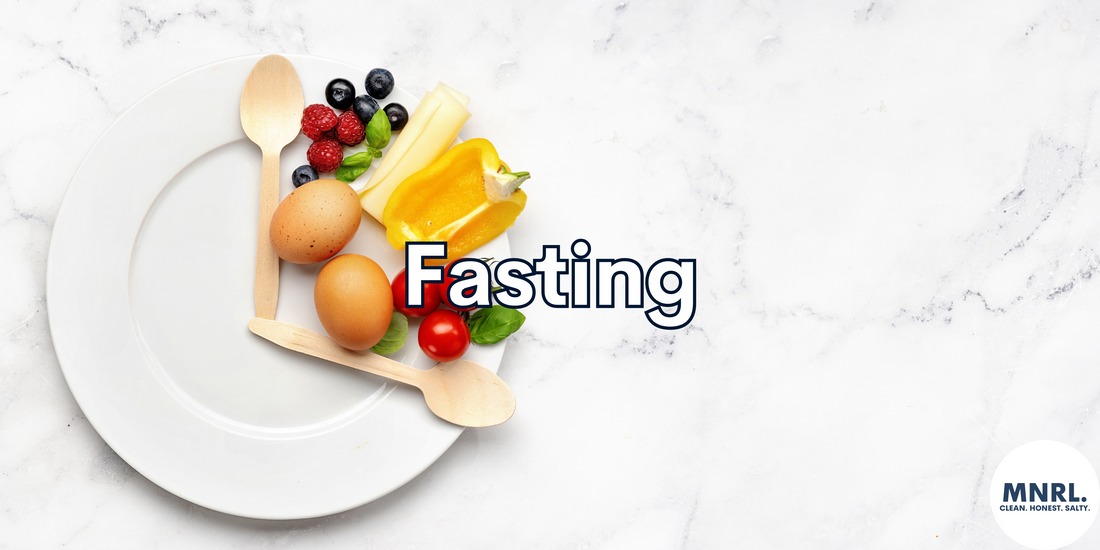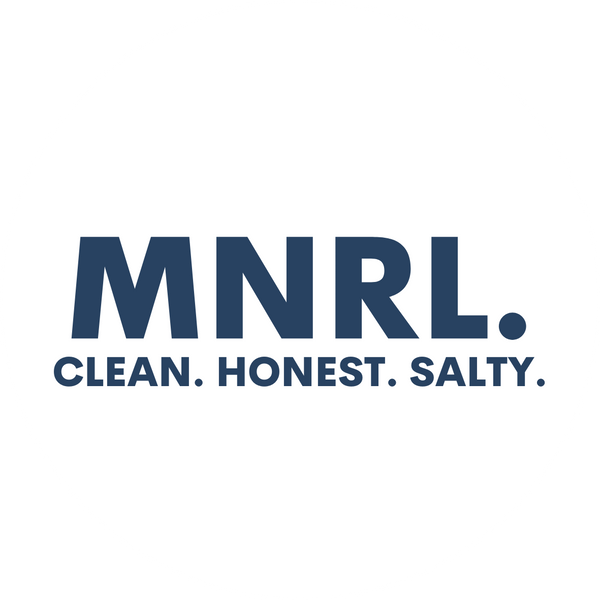
Fasting
Share
I’ve done my fair share of experimenting with various health protocols over the years, some things stick around for longer and others not so much. Fasting was a staple of mine for years, mainly intermittent fasting, where I would skip breakfast and eat between noon and around 7pm. I found it a great way to stabilise my energy levels and a more effective way to restrict my food intake than tracking calories/macros. However, I don’t do it anymore, I’ll discuss why later on, but first let’s go through the potential benefits of fasting, and of course remind you why you need salt.
Fasting is essentially a window of time where we don’t consume calories, sometimes this is around 12-18 hours, we would call this intermittent fasting. Extended fasts are anything that tick over this time, sometimes 3 days, sometimes 10 days. There are also fasting-mimicking protocols where during the fasting window we can consume a very small amount of food, fats seem to be the most popular option.
Fasting can be a very effective way to regulate blood sugar levels, induce ketosis and restrict calories, therefore helping with weight loss. It can also help us differentiate when we are eating purely for hunger, and when we are eating due to habitual patterns. Fasting can also be a great way to kickstart a process called autophagy, where our body cleans up damaged or defective cells and makes brand-spanking new ones in their place.
There are a couple of important thing to keep in mind if you are going to do some sort of fasting protocol. Number one is protein intake, make sure that inside your eating window that you are consuming adequate amounts of good quality protein, this will help to mitigate any muscle loss that might otherwise occur.
Second is hydration. Fasting induces ketosis, a diuretic state where low insulin signals to the body to excrete electrolytes. Supplementing with electrolytes can help with this, which will have nice downstream effects of helping energy levels, nervous system regulation and limiting common symptoms of electrolyte deficiency during the fasting window e.g. cramps, brain fog, headaches etc (double down if you’re also consuming coffee or exercising in your fasting window). Plus, adequate fluid intake will help suppress hunger while you’re not eating. We made sure we kept an unflavoured option in our MNRL. range for the purists, but our flavoured range is clean enough to have negligible carbohydrate content, so plenty of people use flavoured MNRL. when fasting too.
Personally I’ve fallen out of love with fasting, along with a growing number of health experts that were pro-fasting a few years ago. Mainly this is due to the catabolic nature of fasting on muscle mass. We know now that muscle mass is incredibly important, not just for strength but for our general metabolic health and ability to age gracefully, hence why muscle mass has been hailed as the ‘organ of longevity’.
Taking his into account, if you are trying to build or maintain muscle mass, maybe fasting isn’t for you. If you are like me and like to exercise first thing in the morning, maybe fasting isn’t for you. I used to think I had my best workouts fasted, but in reality, I think I felt like I was pushing harder because subjectively the session felt really hard. Once I introduced food around my workouts, my objective output went up significantly.
Fasting is also a stress on our body. Any state of caloric restriction will ramp up our sympathetic nervous system activity, ramping up adrenaline and cortisol. So, if you already lead a full on, stressful life then maybe consider limiting fasting. Sure, our hunter-gatherer ancestors would have had times when they were fasted for long periods of time and the human system has systems in place to deal with this. But our ancestors didn’t have deadlines, mortgages, social media or traffic jams. Stresses they dealt with were intense but short lived, the beneficial kind of stress that causes helpful adaptations. The types of stresses that we now try to replicate in our modern lives through exercise, ice baths and breath holds.
In saying that, fasting can be great for a lot of people, if done well. But it’s worth considering the pros and cons for each individual situation. If fat loss is the main objective, then it could be a very effective tool, if muscle gain/maintenance is the main goal we might be better off having a shorter fasting window. If you’re like me and you’re not so sure fasting is for you, remember you can get a lot of the benefits of fasting through our dietary choices e.g. blood sugar stabilisation and weight loss, and we now know that exercise is just as effective as fasting at inducing autophagy. Whether you fast or don’t fast, the importance of protein and salt intake still stand so make sure you’ve got your steak and MNRL. and you’ll be sorted.
